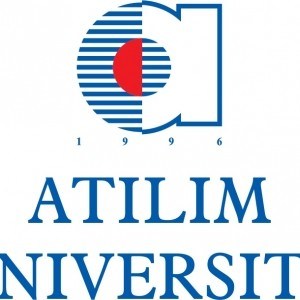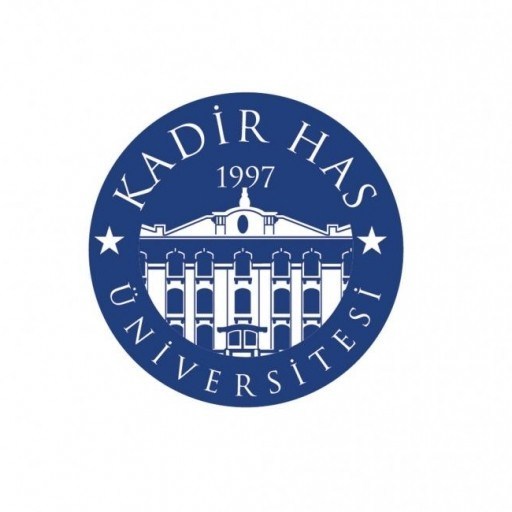Photos of university / #kocuniversity
The Bachelor of Arts in International Relations at Koç University offers a comprehensive and rigorous curriculum designed to prepare students for understanding the complex dynamics of global politics, international affairs, and diplomatic practices. The program emphasizes critical thinking, analytical skills, and a multidisciplinary approach, integrating political science, economics, history, and sociology to provide a well-rounded education in international relations. Students gain in-depth knowledge of international organizations, diplomacy, security studies, regional conflicts, globalization, human rights, and environmental issues, enabling them to analyze global challenges from multiple perspectives. The curriculum includes a combination of theoretical foundations and practical applications, encouraging interactive learning through simulations, internships, and research projects. Koç University’s vibrant academic community fosters engagement with contemporary global issues, and students have opportunities to participate in exchanges with partner institutions worldwide, enhancing their intercultural competence. The program aims to equip graduates with the skills necessary for careers in diplomacy, international organizations, NGOs, multinational corporations, media, and academia. With a faculty composed of leading scholars and practitioners in the field, students are mentored to develop their research capabilities and professional networks. The Bachelor of Arts in International Relations at Koç University is committed to cultivating globally-minded and socially responsible individuals who are eager to contribute to solving international problems and promoting peaceful cooperation among nations.
The Bachelor of Arts in International Relations at Koç University provides students with a comprehensive understanding of global political, economic, social, and cultural issues. The curriculum is designed to equip students with critical thinking skills, analytical abilities, and a deep knowledge of international affairs. Throughout the program, students explore major themes such as international security, diplomacy, international organizations, human rights, globalization, and regional conflicts. The program emphasizes both theoretical foundations and practical applications, preparing graduates for careers in diplomacy, international business, NGOs, journalism, and further academic pursuits.
Students engage with a diverse range of topics through lectures, seminars, and workshops led by renowned faculty members with expertise in international politics, economics, and cultural studies. The curriculum includes core courses in international relations theory, comparative politics, international law, and foreign policy analysis. Additionally, students have the opportunity to customize their studies through electives that focus on specific regions or issues, such as the Middle East, Eurasia, environmental politics, or security studies. Practical training components, such as internships and simulation exercises, are integrated into the program to provide real-world experience and foster professional skills.
Koç University's International Relations program also encourages multilingual proficiency and intercultural competence, recognizing their importance in global affairs. Students are supported in enhancing their language skills in English, with options to learn additional languages. The program promotes active participation in international events, conferences, and exchange programs, facilitating direct engagement with global issues and fostering a broad, international perspective. Graduates of this program are well-prepared for entrepreneurship, policy analysis, diplomatic service, and advanced research, equipped with the skills to analyze complex international phenomena and contribute meaningfully to global solutions.
No specific program requirements are available for the International Relations undergraduate program at Koç University. Typically, for similar programs at Koç University, prospective students are required to submit a completed application form, academic transcripts from previous education, standardized test scores such as the SAT or ACT (if applicable), proof of English proficiency (such as TOEFL or IELTS scores), a statement of purpose, and letters of recommendation. The university evaluates applicants based on academic performance, motivation, and potential to contribute to the academic community. Some programs may also consider extracurricular activities or relevant experience in the field of international relations. Entrance exams are not universally required but may be part of the application process for certain applicants depending on their educational background. The program aims to select students with a strong interest in global affairs and a demonstrated aptitude for social sciences. Once admitted, students are expected to meet certain academic standards, complete core coursework in political science, international law, economics, and foreign languages, and participate in internships or research projects to enhance their understanding of international relations. Koç University also encourages applicants to demonstrate analytical skills, critical thinking, and intercultural competence throughout the admission process. Further specific requirements can be obtained from the university’s official admissions page or the International Relations department directly.
The financing studies for the International Relations program at Koç University encompass a range of scholarship options, financial aid opportunities, and on-campus employment possibilities designed to support students throughout their academic journey. Koç University is committed to providing accessible education, and therefore, offers various scholarships based on academic merit, financial need, and special talents. These scholarships often cover full or partial tuition fees and sometimes include stipends for living expenses, allowing students from diverse backgrounds to pursue their studies without undue financial burden.
Merit-based scholarships are awarded to students with outstanding academic records, high scores on standardized tests, or notable achievements in related fields. Need-based financial aid considers the economic circumstances of applicants and their families, aiming to assist those who demonstrate genuine financial hardship. Additionally, Koç University offers special scholarships for international students, promoting a diverse student body and fostering international academic exchange.
Beyond scholarships, students are encouraged to seek on-campus employment opportunities such as research assistantships or teaching support roles, which can provide additional financial support and valuable academic experience. The university also provides guidance and counseling for external financial aid opportunities, including scholarships from government agencies, international organizations, and private foundations.
Students are advised to apply early and thoroughly to maximize their chances of securing funding. The university’s financial aid office offers ongoing support to students in understanding the application process, required documentation, and eligibility criteria. Overall, the combined efforts of scholarships, aid programs, and on-campus employment make studying International Relations at Koç University a feasible and attractive option for many students, ensuring that financial constraints do not hinder access to world-class education.
The International Relations program at Koç University offers a comprehensive and multidisciplinary education designed to prepare students for understanding and analyzing the complexities of global affairs. The program emphasizes critical thinking, analytical skills, and a deep understanding of international politics, economics, history, and diplomacy. Students gain insights into the functioning of international organizations, the role of state and non-state actors, regional and global power dynamics, and contemporary global challenges such as conflict, security, human rights, and environmental sustainability. The curriculum combines theoretical frameworks with practical applications, encouraging students to engage with case studies, simulations, and internships. Koç University's faculty consists of distinguished scholars and practitioners who bring a wealth of experience and expertise, providing mentorship and fostering an environment of academic excellence. The program also emphasizes language proficiency and intercultural communication, equipping students with the skills necessary for effective engagement in diverse international settings. Opportunities for students include study abroad programs, participation in conferences and workshops, and collaboration with international institutions. Graduates of the program typically pursue careers in diplomacy, international organizations, policy analysis, journalism, academia, or corporate sectors involved in global affairs. The university’s strategic location and strong network with European and international institutions further enhance the educational experience, offering students exposure to real-world issues and professional opportunities. The program aims to develop well-rounded individuals capable of contributing thoughtfully to global issues and shaping international policy through rigorous research and active engagement.







